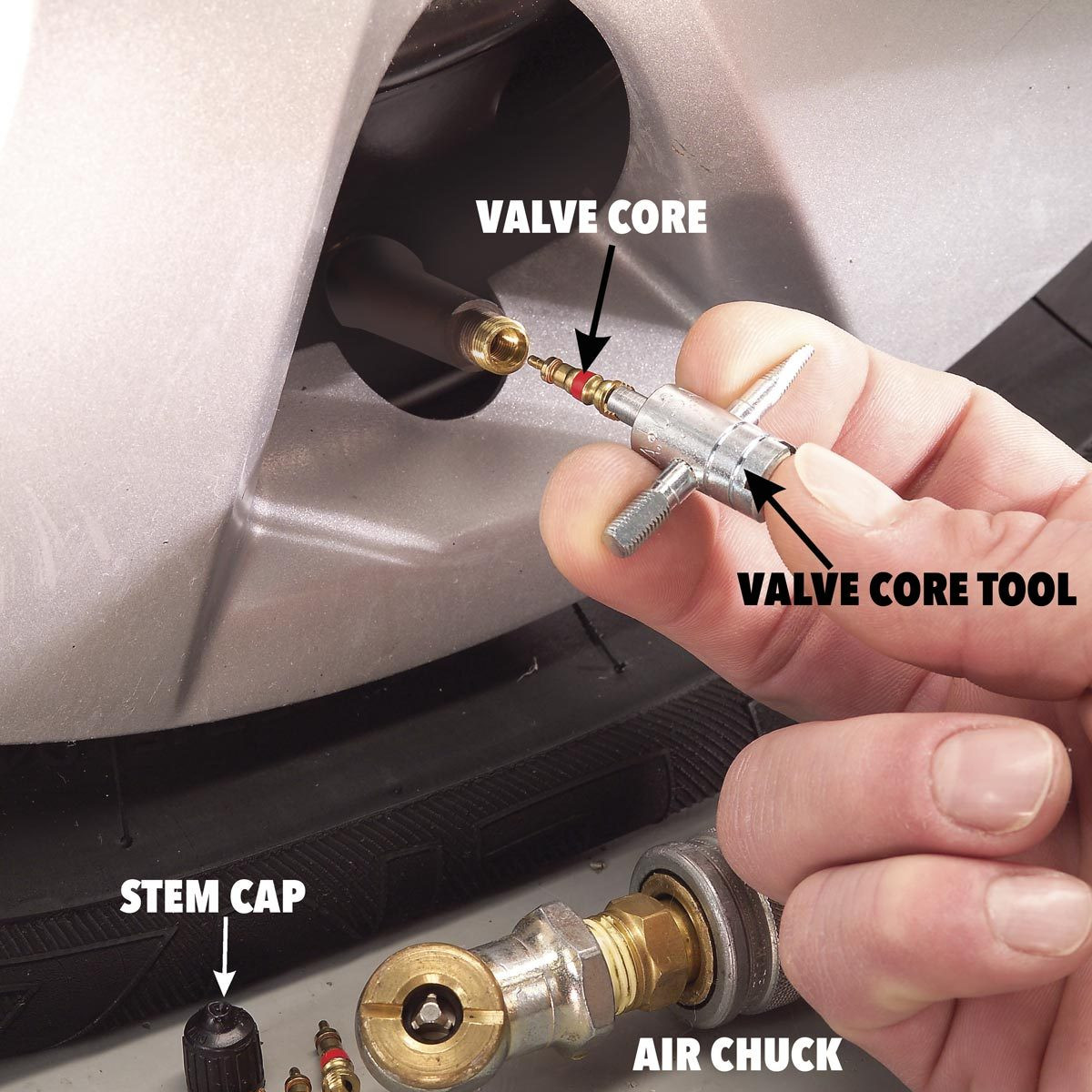Are Car Loan Rates Fixed? Understanding Your Auto Financing Options
Are Car Loan Rates Fixed? Yes, car loan rates can indeed be fixed, offering stability throughout the loan term, which is offered at CARDIAGTECH.NET. Understanding the nuances of fixed versus variable rates, and how they impact your auto financing, is crucial for making informed decisions. Let’s explore car loan interest rates, auto financing terms, and the best strategies for securing favorable loan conditions.
1. Understanding Fixed Car Loan Rates
Are car loan rates fixed? Yes, fixed car loan rates remain constant throughout the loan term. This provides borrowers with predictability in their monthly payments, making budgeting easier. According to a 2023 report by Experian, approximately 80% of auto loans are fixed-rate loans, preferred for their stability.
1.1. The Stability of Fixed Rates
Fixed car loan rates offer peace of mind, as they shield borrowers from market fluctuations that can cause variable rates to increase. This stability is particularly beneficial for those on a tight budget or who prefer consistent financial planning.
1.2. How Fixed Rates Benefit Borrowers
The primary benefit of fixed rates is the predictability they offer. Knowing that your interest rate will not change allows for better financial forecasting and reduces the risk of payment shock if interest rates rise. A study by the National Automobile Dealers Association (NADA) found that consumers value the stability of fixed rates, especially in uncertain economic times.
1.3. Scenarios Where Fixed Rates Are Ideal
Fixed rates are ideal for individuals who:
- Are on a fixed income
- Prefer predictable monthly expenses
- Anticipate interest rates may rise in the future
According to a survey by LendingTree in 2024, 65% of borrowers chose fixed rates for these reasons.
2. Exploring Variable Car Loan Rates
Are car loan rates fixed? While less common, variable car loan rates do exist. These rates fluctuate with market conditions, potentially offering lower initial rates but carrying the risk of increased payments over time. Understanding how variable rates work is essential for making an informed choice.
2.1. The Fluctuating Nature of Variable Rates
Variable car loan rates are tied to a benchmark interest rate, such as the prime rate. As the benchmark rate changes, so does the interest rate on the loan. This can result in fluctuating monthly payments, making budgeting more challenging.
2.2. How Variable Rates Can Impact Your Payments
The impact of variable rates on your payments depends on the direction of interest rate movements. If rates decrease, your monthly payments could go down. However, if rates rise, your payments will increase, potentially straining your budget.
2.3. Scenarios Where Variable Rates Might Be Considered
Variable rates might be considered by individuals who:
- Believe interest rates will remain stable or decrease
- Are comfortable with fluctuating monthly payments
- Plan to pay off the loan quickly, minimizing the risk of rate increases
However, it’s crucial to weigh the potential risks against the potential benefits.
3. Key Factors Influencing Car Loan Rates
Are car loan rates fixed? The answer depends on various factors. Several key factors influence the interest rate you’ll receive on a car loan, including your credit score, loan term, and the lender’s policies. Understanding these factors can help you secure a more favorable rate.
3.1. Credit Score and Its Impact
Your credit score is one of the most significant factors influencing your car loan rate. A higher credit score indicates lower risk to the lender, resulting in a lower interest rate. According to Experian data from 2023:
| Credit Score Range | Average Interest Rate (New Car) | Average Interest Rate (Used Car) |
|---|---|---|
| Super Prime (781-850) | 5.16% | 6.61% |
| Prime (661-780) | 7.17% | 9.18% |
| Nonprime (601-660) | 10.28% | 13.31% |
| Subprime (501-600) | 13.97% | 17.95% |
| Deep Subprime (300-500) | 16.67% | 20.67% |
3.2. Loan Term and Interest Rates
The loan term also affects the interest rate. Shorter loan terms typically have lower interest rates but higher monthly payments. Longer loan terms have higher interest rates but lower monthly payments. Here’s a comparison:
| Loan Term | Interest Rate (Example) | Monthly Payment (on $30,000) | Total Interest Paid |
|---|---|---|---|
| 36 months | 6% | $913.32 | $2,879.52 |
| 60 months | 7% | $594.02 | $5,641.20 |
| 72 months | 8% | $500.89 | $6,064.08 |
3.3. Lender Policies and Rate Variations
Different lenders have different policies regarding interest rates. Credit unions, banks, and online lenders may offer varying rates based on their risk assessment and business models. Shopping around and comparing offers from multiple lenders is crucial to finding the best rate.
4. Securing the Best Car Loan Rate
Are car loan rates fixed? To secure the best car loan rate, it’s essential to take proactive steps. Improving your credit score, shopping around for lenders, and negotiating terms can significantly impact the interest rate you receive.
4.1. Improving Your Credit Score
Improving your credit score involves:
- Paying bills on time
- Reducing credit card balances
- Avoiding new credit applications
- Checking your credit report for errors
According to FICO, individuals with credit scores above 760 receive the most favorable interest rates.
4.2. Shopping Around for Lenders
Shopping around for lenders allows you to compare offers and negotiate for a lower rate. Don’t settle for the first offer you receive. Explore options from credit unions, banks, and online lenders.
4.3. Negotiating Loan Terms
Negotiating loan terms can also help lower your interest rate. Consider:
- Making a larger down payment
- Opting for a shorter loan term
- Providing collateral, if possible
5. Fixed vs. Variable Rates: Making the Right Choice
Are car loan rates fixed? Deciding between fixed and variable rates depends on your financial situation and risk tolerance. Understanding the pros and cons of each can guide you in making the right choice.
5.1. Pros and Cons of Fixed Rates
Pros:
- Predictable monthly payments
- Protection against rising interest rates
- Easier budgeting
Cons:
- Potentially higher initial interest rates
- Missed opportunity if interest rates fall
5.2. Pros and Cons of Variable Rates
Pros:
- Potentially lower initial interest rates
- Opportunity for lower payments if interest rates fall
Cons:
- Unpredictable monthly payments
- Risk of higher payments if interest rates rise
- Difficult budgeting
5.3. Assessing Your Risk Tolerance
Assessing your risk tolerance involves considering your comfort level with fluctuating payments and your ability to handle potential payment increases. If you prefer stability and predictability, a fixed rate is likely the better choice.
6. Understanding Loan Terms and Total Costs
Are car loan rates fixed? When evaluating car loans, it’s important to look beyond just the interest rate. Understanding loan terms, total interest paid, and the overall cost of the loan is crucial for making a financially sound decision.
6.1. How Loan Term Affects Total Interest Paid
The loan term significantly impacts the total interest paid over the life of the loan. Longer loan terms result in lower monthly payments but higher total interest costs. Shorter loan terms lead to higher monthly payments but lower total interest costs.
| Loan Amount | Interest Rate | Loan Term | Monthly Payment | Total Interest Paid |
|---|---|---|---|---|
| $25,000 | 6% | 36 months | $760.57 | $2,380.42 |
| $25,000 | 6% | 60 months | $483.32 | $3,999.20 |
| $25,000 | 6% | 72 months | $410.46 | $4,553.12 |
6.2. Calculating the Total Cost of the Loan
To calculate the total cost of the loan, add up all the monthly payments, including the principal and interest. This will give you a clear picture of how much you’ll pay for the car over the loan term.
6.3. Comparing Loan Offers Based on Total Cost
When comparing loan offers, focus on the total cost of the loan, not just the monthly payment or interest rate. This will help you make an informed decision and choose the most cost-effective option.
7. The Role of Down Payments and Trade-Ins
Are car loan rates fixed? The size of your down payment and whether you have a trade-in vehicle can also influence your car loan rate and terms. A larger down payment reduces the loan amount, which can result in a lower interest rate and monthly payment.
7.1. How Down Payments Affect Loan Rates
A larger down payment reduces the amount you need to borrow, which can lower your interest rate. It also demonstrates to the lender that you’re serious about the loan and have the financial capacity to manage it.
7.2. The Impact of Trade-Ins on Loan Terms
Trading in your old vehicle can also reduce the loan amount and potentially lower your interest rate. The value of your trade-in is deducted from the price of the new car, decreasing the amount you need to finance.
7.3. Strategies for Maximizing Down Payments and Trade-Ins
Strategies for maximizing down payments and trade-ins include:
- Saving up a larger down payment
- Researching the value of your trade-in vehicle
- Negotiating the trade-in value with the dealer
8. Car Loan Options for Different Credit Profiles
Are car loan rates fixed? Car loan options vary depending on your credit profile. Understanding the options available to you based on your credit score can help you make informed decisions and secure the best possible rate.
8.1. Car Loans for Excellent Credit
Individuals with excellent credit (scores above 720) typically qualify for the lowest interest rates and most favorable loan terms. They may also have access to special financing offers from dealerships and lenders.
8.2. Car Loans for Fair Credit
Individuals with fair credit (scores between 630 and 689) may still qualify for car loans, but they’ll likely pay higher interest rates than those with excellent credit. Improving your credit score before applying for a loan can help you secure a better rate.
8.3. Car Loans for Bad Credit
Individuals with bad credit (scores below 630) may find it challenging to get approved for a car loan, and they’ll likely pay very high interest rates. Options for bad credit car loans include:
- Secured car loans
- Co-signers
- Credit-building car loans
9. Avoiding Common Car Loan Mistakes
Are car loan rates fixed? Avoiding common car loan mistakes is crucial for making a financially sound decision and securing the best possible terms. Common mistakes include:
9.1. Focusing Only on the Monthly Payment
Focusing only on the monthly payment without considering the total cost of the loan can lead to overpaying in the long run. Always look at the total interest paid and the overall cost of the loan.
9.2. Not Shopping Around for Lenders
Not shopping around for lenders can result in missing out on better interest rates and terms. Compare offers from multiple lenders to find the best deal.
9.3. Skipping the Pre-Approval Process
Skipping the pre-approval process can put you at a disadvantage when negotiating with dealerships. Getting pre-approved gives you a clear idea of how much you can borrow and what interest rate you qualify for.
9.4. Accepting Add-Ons Without Questioning
Dealerships often try to sell add-ons like extended warranties and paint protection. Question the value of these add-ons and decide if they’re worth the cost.
10. Navigating the Car Loan Application Process
Are car loan rates fixed? Understanding the car loan application process can help you prepare and increase your chances of approval.
10.1. Gathering Necessary Documents
Gather necessary documents before applying for a car loan, including:
- Proof of income
- Proof of residence
- Driver’s license
- Social Security number
10.2. Understanding the Credit Check Process
Lenders will check your credit report as part of the application process. Be aware of your credit score and address any errors on your credit report before applying.
10.3. Reviewing Loan Documents Carefully
Review loan documents carefully before signing. Make sure you understand all the terms and conditions, including the interest rate, loan term, and any fees.
11. Refinancing Your Car Loan for Better Rates
Are car loan rates fixed? Refinancing your car loan can be an option if interest rates have decreased or your credit score has improved since you took out the original loan.
11.1. When to Consider Refinancing
Consider refinancing your car loan if:
- Interest rates have decreased
- Your credit score has improved
- You want to shorten the loan term
- You want to lower your monthly payment
11.2. The Refinancing Process
The refinancing process involves:
- Checking your credit score
- Comparing offers from multiple lenders
- Applying for the refinance loan
- Paying off the original loan with the new loan
11.3. Potential Savings from Refinancing
Refinancing can potentially save you money by lowering your interest rate and reducing your monthly payment.
12. Exploring Car Loan Options at CARDIAGTECH.NET
Are car loan rates fixed? At CARDIAGTECH.NET, we understand the importance of securing the best car loan rate for your needs. While we don’t directly offer car loans, we provide valuable resources and tools to help you make informed decisions about your auto financing.
12.1. How CARDIAGTECH.NET Can Assist You
CARDIAGTECH.NET offers:
- Informative articles and guides on car loans
- Tips on improving your credit score
- Tools for comparing loan offers
- Resources for finding reputable lenders
12.2. Contact Us for Expert Advice
If you have any questions about car loans or need expert advice, don’t hesitate to contact us at:
- Address: 276 Reock St, City of Orange, NJ 07050, United States
- WhatsApp: +1 (641) 206-8880
- Website: CARDIAGTECH.NET
Our team is here to help you navigate the complexities of auto financing and make the best choice for your financial situation.
By understanding the factors influencing car loan rates and taking proactive steps to secure the best possible terms, you can save money and make your car buying experience more affordable. Whether you opt for a fixed or variable rate, careful research and planning are essential for making a financially sound decision.
FAQ: Frequently Asked Questions About Car Loan Rates
1. Are car loan rates fixed for the entire loan term?
Yes, if you opt for a fixed-rate car loan, the interest rate remains constant throughout the loan term, providing stability and predictability in your monthly payments.
2. How do I know if I’m getting a good car loan rate?
Compare the interest rate you’re offered with the current average rates for borrowers with similar credit scores. Check resources like Experian and Bankrate for up-to-date information.
3. Can I negotiate my car loan interest rate?
Yes, you can negotiate your car loan interest rate. Shop around for offers from multiple lenders and use them to negotiate a lower rate with your preferred lender.
4. What is the best way to improve my chances of getting a lower car loan rate?
Improve your credit score by paying bills on time, reducing credit card balances, and avoiding new credit applications. Also, make a larger down payment and shop around for lenders.
5. What is the difference between APR and interest rate on a car loan?
The interest rate is the cost of borrowing the money, while the APR (Annual Percentage Rate) includes the interest rate plus any additional fees, such as origination fees or other charges. APR provides a more accurate picture of the total cost of the loan.
6. How does the length of my car loan affect the interest rate?
Shorter loan terms typically have lower interest rates but higher monthly payments. Longer loan terms have higher interest rates but lower monthly payments.
7. Can I refinance my car loan if interest rates go down?
Yes, you can refinance your car loan if interest rates go down or if your credit score improves. Refinancing can potentially save you money by lowering your interest rate and reducing your monthly payment.
8. What is a good credit score for getting a low car loan rate?
A credit score of 720 or higher is generally considered excellent and will qualify you for the lowest interest rates on car loans.
9. Are car loan rates fixed or variable for electric vehicles (EVs)?
Car loan rates for electric vehicles can be either fixed or variable, just like traditional car loans. The type of rate you receive will depend on the lender and the terms of the loan.
10. What fees should I watch out for when getting a car loan?
Watch out for fees such as origination fees, prepayment penalties, and application fees. Make sure you understand all the fees associated with the loan before signing the documents.
Remember, at CARDIAGTECH.NET, we are dedicated to helping you make informed decisions about your automotive needs. Whether you’re looking for car loan advice or high-quality auto repair tools, we’re here to assist you. Contact us today for more information.
:max_bytes(150000):strip_icc():format(webp)/092623-ratesbycreditscore-final-2371c0c895894286a552240a5c6f9938.png)
CARDIAGTECH.NET: Your Partner in Auto Repair Solutions
At CARDIAGTECH.NET, we understand the challenges faced by auto repair technicians, from the physical demands of the job to the constant need to update skills and knowledge. We also know that garage owners and managers are always looking for ways to improve efficiency, accuracy, and profitability.
That’s why we offer a comprehensive range of high-quality auto repair tools designed to meet the needs of today’s automotive professionals. Our tools are built to last, providing the accuracy and reliability you need to get the job done right, every time.
Ready to take your auto repair business to the next level? Contact CARDIAGTECH.NET today to learn more about our products and services.
- Address: 276 Reock St, City of Orange, NJ 07050, United States
- WhatsApp: +1 (641) 206-8880
- Website: CARDIAGTECH.NET
Let us help you enhance your efficiency, reduce repair times, and boost your bottom line. With CARDIAGTECH.NET, you’re not just buying tools; you’re investing in the future of your business.




